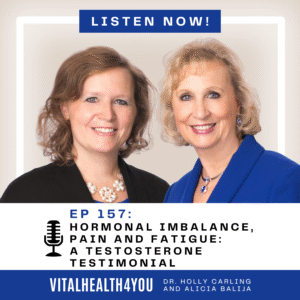So often I hear people say they have heartburn, indigestion, reflux or frequent upset stomach and add “but it’s really no big deal, I just pop a Tums” (or Prilosec or other OTC or prescribed medication). “It’s just more of an annoyance than anything!” But it is a big deal, and it is not just an annoyance. Symptoms are the body’s red flag that says “Hello! Something is wrong here! I need attention!” So-called “minor” symptoms are a big deal too, because it is easier to address the problem at the “minor symptom” stage than to wait for a full-blown can-no-longer-tolerate-it symptom to appear. Any symptom is worth investigating.
Most digestive symptoms stem from insufficient enzyme production or release. Sometimes that is mis-read as too much acid. If this is the case, we need to be asking “why?” There are several things that interfere with proper digestion, most of which can be remedied simply.
First, slow down when you are eating. Chew your food to a liquid so the communication system, the tongue-brain-gut connection, can be stimulated. This also applies to not eating on the run or when stressed, because it all seems to happen together. When eating on the run, quickly, or when stressed, you are likely in a fight or flight response. This emergency mode triggers any metabolic process needed to either run or fight to be amplified, and anything not needed to fight or flee to be shut down. Well, we don’t need digestion in this emergency mode, so our digestion gets shut down to bare minimums for survival. That can result in you having symptoms of indigestion, heartburn or reflux.
You also need to have a diet that is sufficient in whole food nutrition so that the body has the minerals, fats and proteins necessary for the body to supply enzymes and to work properly. The more processed the food is, the less the nutrient availability is, and we are expecting the body to function on an empty tank. Garbage in, garbage out. Perfectly steamed vegetables are particularly beneficial with digestive distress and should be eaten liberally, with butter added, by most people.
Allergies and irritating foods are a big deal when it comes to digestion. Food irritants such as gluten, coffee, alcohol and sugar can cause inflammation in the digestive tract that sets the stage for deeper, more serious digestive symptoms. Any allergy, such as to dairy, soy, corn, etc. needs to be addressed by eliminating it from the diet. Even a “little allergy” can be enough to cause digestive distress.
This is just the tip of the iceberg. There are many things that can contribute to digestive distress, and many things you can do to remedy it.
©2020 Holly A. Carling, O.M.D., L.Ac., Ph.D.







